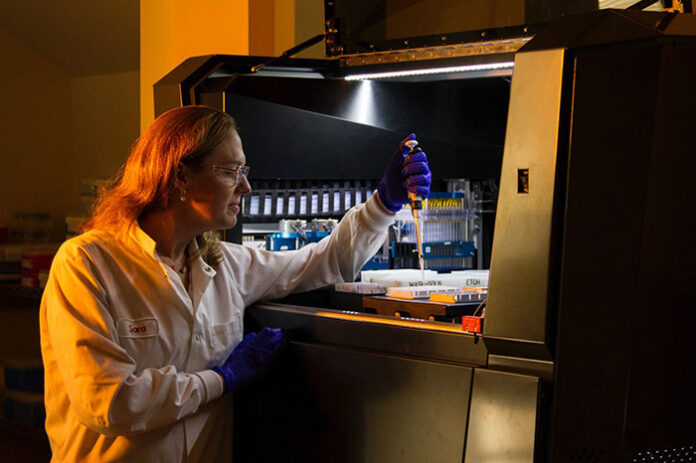Protein expression refers to the synthesis of proteins within cells using information contained in the DNA or gene.
Proteins are responsible for all the biochemical reactions that take place within the cell. Hence, it makes it necessary to study protein function in order to understand cellular processes.
This is currently studied based on using fluorescent proteins as tags. However, this does not provide real time analysis as it requires maturation of chromophore that takes time and this causes a delay in investigation of real-time expression, especially for proteins that are transient or ephemeral in nature.
The researchers have reported a novel technique on preprint server on 30 July 2020 which can overcome this limitation.
The new study describes the use a fluorescent biosensor that enables real-time detection of protein expression in vivo which has implications for understanding the spatiotemporal expression of proteins within the living organism. This sensor is based on a dim green fluorescent protein in which pre-existing fluorescence increases 11-fold in vivo following the specific and rapid binding of a protein tag and enables detection of protein expression within seconds in live cells.

This biosensor will be useful to study biological processes in real-time where proteins are either transiently expressed and/or to understand the expression and interactions of proteins from a disease-causing organism such as bacteria or a virus with that of the host proteins.
Reference:
Eason MG., Pandelieva AT., Mayer MM., et al 2020. Genetically-encoded fluorescent biosensor for rapid detection of protein expression. Preprint: bioRxiv 2020.07.30.229633; DOI: https://doi.org/10.1101/2020.07.30.229633
***






































